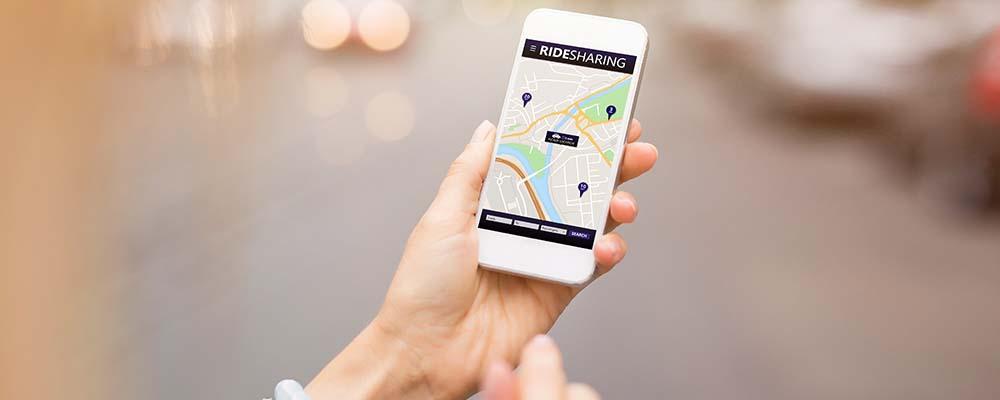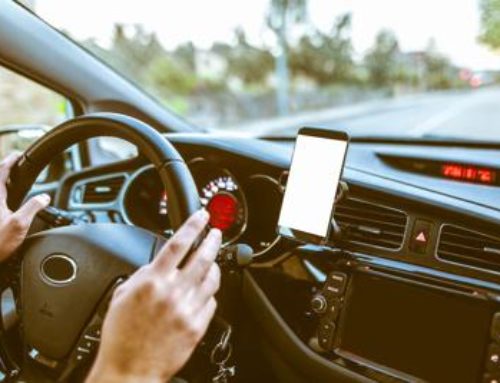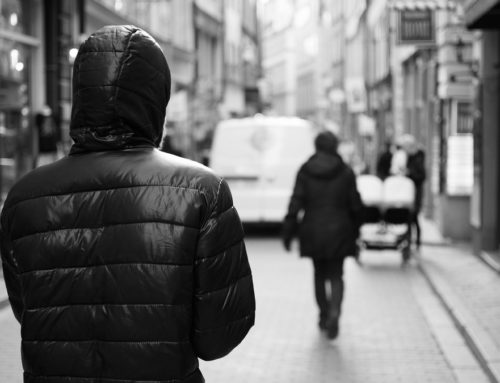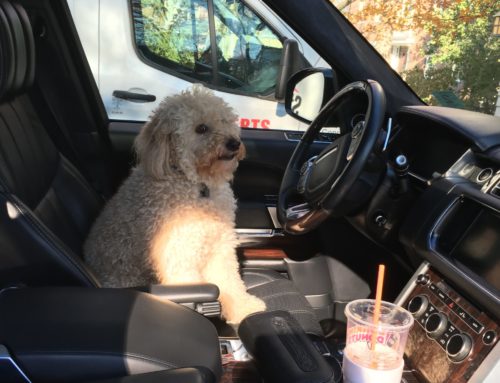There are many transportation options available to people today. The combination of technology and demand has created new, popular and efficient ways of getting around. Nowadays, finding a ride is just a smartphone click away. There’s a cellphone app for just about everything, and getting a ride from point A to point B is on the list. Rideshare apps like Lyft or Uber are simple, convenient and effortless. With these types of mobile apps, it is incredibly easy for riders to secure a ride whenever they need to go somewhere. Ridesharing services, such as Uber and Lyft, are becoming more popular every year. You can always find a driver that can assist you in getting home or anywhere you want to go. It isn’t necessary to pre-order or pre-schedule a ride. When you need a lift, just open the app on your mobile device and select your location, and you will know how close the nearest driver is to you. Once you order a ride, you can track your driver’s movement and be ready when they arrive at to pick you up. It’s as simple as that. Get a ride anywhere any time, any where you want.
Taxi use has been quickly declining in favor of other transportation methods. In fact, the main players like Uber and Lyft keep tightening their grip and domination in the rideshare transportation industry. According to RidshareApps.dot.com, if you combine all Uber trips in the past 5 years, the total distance is just over a round trip to Saturn! There are 8 million Uber users worldwide with a net value of $51 billion. There are 631,000 Lyft users worldwide with a net value of $1.2 billion. Although these companies were created only a few years ago, those are some solid stats with exponential growth trends.
The reasons for ridesharing popularity are clear. Get a ride anytime, low fees, no cash exchanges, rider discounts and certain safety measures are a few of the things that make this transportation method so attractive. According to MADD, 60% less drunken driving accidents occur each month; 70% of people say Uber makes their friends less likely to drive after drinking; and 1,800 crashes have been avoided since 2012. Researchers at Stonehill and Providence colleges co-authored a study titled “Ridesharing, Fatal Crashes and Crime” in which they examined 150 cities to determine the effects of Uber on auto-related incidents. They found that ridesharing services are related to a decrease in fatal crashes, DUIs and some types of crime.
Although there are positives and benefits of ridesharing, just like anything else, it comes with its own set of risks and challenges. Some of those challenges include legal and liability issues. Some concerns include safety measures, accidents and insurance coverage. The rideshare industry has the potential to make our roads safer, but there’s no guarantee that rideshare companies are immune to dangers and accidents. The bottom line is that traveling always involves some level of risk, no matter what form of transportation you use.
Regardless of your transportation method preferences, Schulze Law is always here for you if you’ve been hurt or injured in an accident. If you’ve experienced a rideshare accident, then you know firsthand how stressful it can be for the victims and their families—and the injuries that result are immensely taxing and painful. Let us help you navigate the many decisions that need to be made so that you can focus on recovering and healing. The attorneys and staff of Schulze Law can protect you from unfair treatment after a car accident and ensure that other motorists, rideshare drivers and insurance companies involved cannot use your statements and actions against you.
What happens when there is an accident in an Uber, Lyft or other ridesharing app? The truth is all drivers are at risk for accidents on the road. If there are accidents, collisions or other issues, the question that becomes important is how this affects liability and who is responsible. When two vehicles are involved in a car crash, establishing liability and which insurance company should pay may seem relatively straightforward. But, if one of the vehicles was used in a rideshare program at the time of the accident, the situation can become more complex and difficult.
Steps If You’ve Been in An Uber Accident:
- Check yourself, other passengers and the Uber driver for injuries.
- Call 911 and the police immediately after the accident.
- Seek medical attention immediately — even if you don’t think you have injuries.
- Get the contact information and insurance of the Uber driver and other drivers involved in the accident.
- Collect the contact information of any witnesses (if any).
- Gather the information of any affected party or bystander who saw the accident.
- Contact Schulze Law.
- Take photos of the accident.
Common Causes of Uber and Lyft Accidents Include:
- Lack of sleep. Uber drivers who want to make more money may attempt to drive longer periods of time, which can result in tiredness and car accidents. Luckily, Uber has changed this rule to a 12-hour work shift cap per 24 hours.
- Poor vehicle maintenance. The vehicle may not be maintained properly, so it’s not in drivable condition.
- Negligent drivers. This occurs when drivers are reckless with their driving behavior — speeding, not following roadway signs, etc.
- Drivers who are intoxicated or under the influence of drugs. Drinking or using drugs while driving is a bad combo.
Who Pays When an Uber Has an Accident?
Uber drivers are not technically employees of Uber. They are considered independent contractors. Essentially, Uber isn’t the employer, simply the technology company that offers the rideshare platform. This means they must have their own auto insurance. This distinction has allowed the company to deny liability when their drivers are involved in accidents.
According to Uber.com, they do manage an insurance policy for its drivers to go along with their personal protection. As an Uber passenger, minimum coverage per accident under the Uber insurance policy often includes:
- Injury liability: $50,000
- Total liability: $100,000
- Property damage: $25,000
- Third-party total liability: $1,000,000
- Uninsured or underinsured motorist bodily injury coverage: $1,000
Unfortunately, it may be challenging to make a claim if you’re an Uber car accident passenger. Big organizations can be difficult to get in touch with which is why you need Schulze Law on your side.
Difficulty Getting Compensation
Even though Uber has extra liability coverage for its drivers, that doesn’t necessarily mean it’s going to be wicked easy to get compensated for your Uber accident injury.
It’s just like any other insurance company. It’s a business trying to make a profit. Uber may try to fight your claim. At Schulze Law, we fight back, getting you the compensation you deserve.
Reasons Uber May Not Cover Your Accident
- The Uber driver’s insurer doesn’t cover “driving for profit.” Some insurance companies don’t have the ‘driving for profit’ on their policies.
- Your insurance might not cover the cost of the crash. Insurance coverage might be too minimal to cover your injuries.
- In-between fares might not be covered.
According to HG.org Legal Resource, Here’s How Uber Insurance Works:
Insurance Coverage: Basic Principles
Uber has a $1 million insurance policy. But, the company and passengers are covered by a three-part insurance plan. The coverage that applies is based on the driver’s activity at the time that the accident occurred.
Not Available
If the driver is using their vehicle for personal business and is not available to accept requests from rides from customers, the Uber policy isn’t applicable. Instead, the driver’s personal policy comes into play. The coverage limit is based on this personal policy. The policy that may provide coverage is their own, depending on the type of insurance that he or she has.
Available but No Passenger
If the driver is available on the app and ready to pick up passengers but is not carrying a passenger when the accident occurs, the primary insurance is the driver’s own insurance policy. That said, Uber offers additional coverage in this situation with liability coverage up to $50,000 per injury with a maximum of $100,000 and a maximum of $25,000 in property damage. This coverage only kicks in if the driver requests it and if the driver’s personal liability coverage does not cover the damages entirely.
Available and Carrying a Passenger
This is the situation when the $1 million policy can swoop in. If the Uber driver is carrying an Uber passenger, the driver and passenger are covered under the liability insurance policy. Also, if a third party was injured, such as a cyclist or pedestrian, the third party is covered by Uber’s policy when the driver was carrying a passenger. But, if Uber denies coverage, the Uber driver and passenger may still be denied by the driver’s personal insurance policy because the driver was driving for pay at the time of the accident. It’s a little complicated.
Uninsured Motorist
Uber also carries a $1 million uninsured/underinsured motorist policy so that if the accident is caused by an uninsured driver, this policy will kick in.
Denied Claims
Uber’s insurance policy’s carrier helps avoid paying out as many claims as possible. It is not uncommon for accident claims to be denied by Uber’s carrier. Accident victims may respond to a denial like this by suing Uber directly. They can also seek payment from the driver’s personal insurance company. Complications with ridesharing and suing the driver directly may limit the amount of damages that can be received.
Tip for Uber Drivers: Make sure you have personal rideshare insurance or GAP insurance to cover the gaps in your insurance policy. There are a lot of accidents Uber won’t cover while driving. Keep in mind Uber also has a $1000 deductible.
Suing Uber
If you’ve been injured in an Uber accident, even if the driver wasn’t at fault, you could sue Uber and receive monetary compensation for your injuries. If someone is injured while riding as a passenger or driver for Uber, they may be able to pursue a civil lawsuit against Uber or the driver’s insurance company. Compensation may be claimed for medical expenses, lost wages, pain and suffering and other damages.
Uber can be an excellent transportation method. But the reality is that an accident can happen at any time. If you’re a passenger in an Uber or Lyft, you need to be prepared and know what you need do after an accident. The Team at Schulze Law sincerely hopes you stay safe and avoid accidents. Unfortunately, we know that even with precautionary measures, accidents and injuries can still happen. If you’re injured in a ridesharing accident, the attorneys and staff of Schulze Law will make sure that you receive justice as the injured passenger.
CALL NOW: 857-300-5300 Emergency After Hours Number: 800-894-9267 XLAW1 (5291) for your free legal consultation.
https://www.hg.org/
https://help.uber.com/






